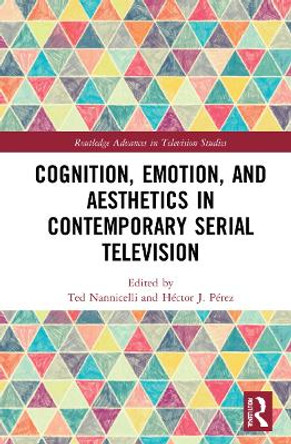Description
Contemporary television has been marked by such exceptional programming that it is now common to hear claims that TV has finally become an art. In Appreciating the Art of Television, Nannicelli contends that televisual art is not a recent development, but has in fact existed for a long time. Yet despite the flourishing of two relevant academic subfields-the philosophy of film and television aesthetics-there is little scholarship on television, in general, as an art form. This book aims to provide scholars active in television aesthetics with a critical overview of the relevant philosophical literature, while also giving philosophers of film a particular account of the art of television that will hopefully spur further interest and debate. It offers the first sustained theoretical examination of what is involved in appreciating television as an art and how this bears on the practical business of television scholars, critics, students, and fans-namely the comprehension, interpretation, and evaluation of specific televisual artworks.
About the Author
Ted Nannicelli is Lecturer in Film and Television Studies at the University of Queensland, Australia. He is the author of A Philosophy of the Screenplay (Routledge, 2013). He is co-editor, with Paul Taberham, of Cognitive Media Theory (Routledge, 2014), and associate editor of Projections: The Journal for Movies and Mind.
Reviews
"Ted Nannicelli's Appreciating the Art of Television is a signal intervention into the burgeoning field of television aesthetics. Nannicelli draws on contemporary analytic philosophy of art to advance compelling, often original arguments about the authorship and ontology of television works, television's distinctiveness as a medium, the role of authorial intentions in the audience's interpretation of television works, and the evaluation of television as an art. His theorizing is characterized by impeccable clarity and rigor, and he mounts formidable challenges to arguments that are commonplace in TV studies: that fans determine the meanings of television works, for example, or that there is nothing objective about the evaluation of television as an art. These claims will have to be reckoned with by anyone seeking to understand the nature of television as an art and our appreciation of it, and this book is therefore required reading for those interested in the aesthetics of television." Malcolm Turvey, Sarah Lawrence College, USA
"This is an exciting and valuable book project, where Nannicelli brings together two lines of inquiry - analytical aesthetics and philosophy of film on the one hand and television studies on the other. Specifically, he explores how an intentionalist approach can solve a series of philosophical problems indirectly evident in many accounts in television studies. Through careful discussion he disentangles these philosophical problems and presents an original contribution to the emerging field of television aesthetics. Philosophically minded media scholars and philosophers interested in television will learn from and enjoy this book." -Margrethe Bruun Vaage, University of Kent, UK
Book Information
ISBN 9780367871864
Author Ted Nannicelli
Format Paperback
Page Count 228
Imprint Routledge
Publisher Taylor & Francis Ltd
Weight(grams) 453g




